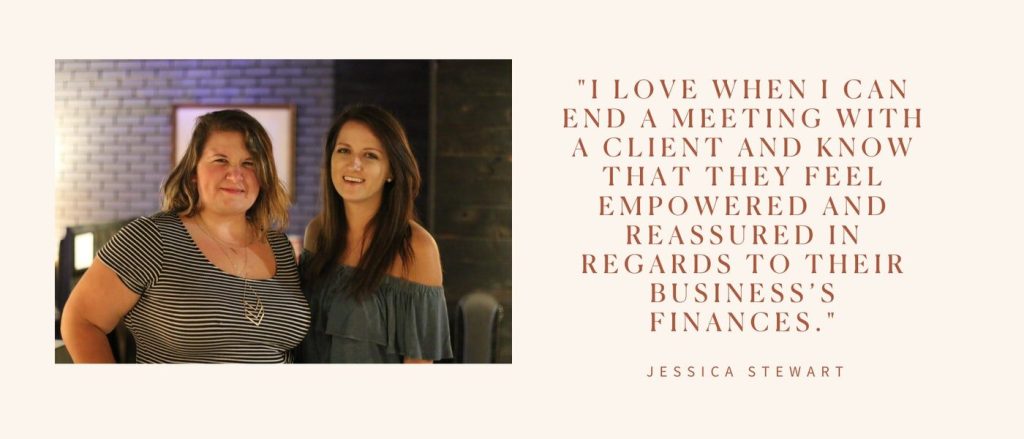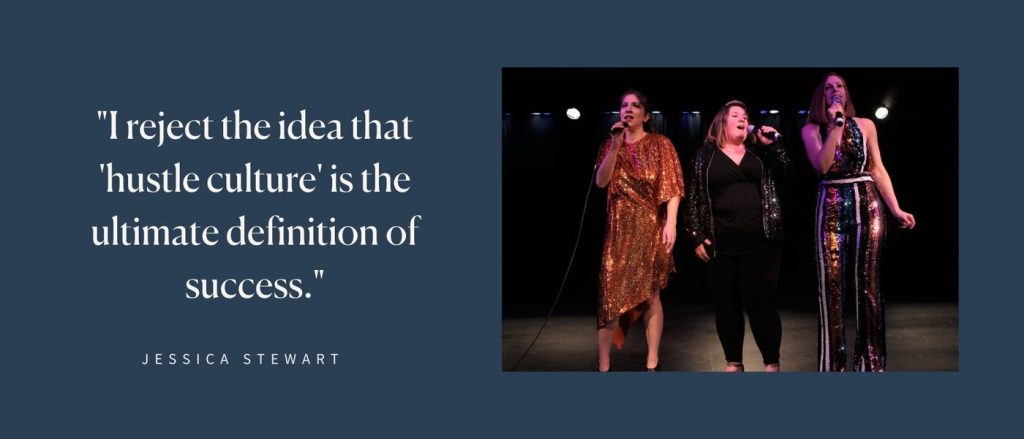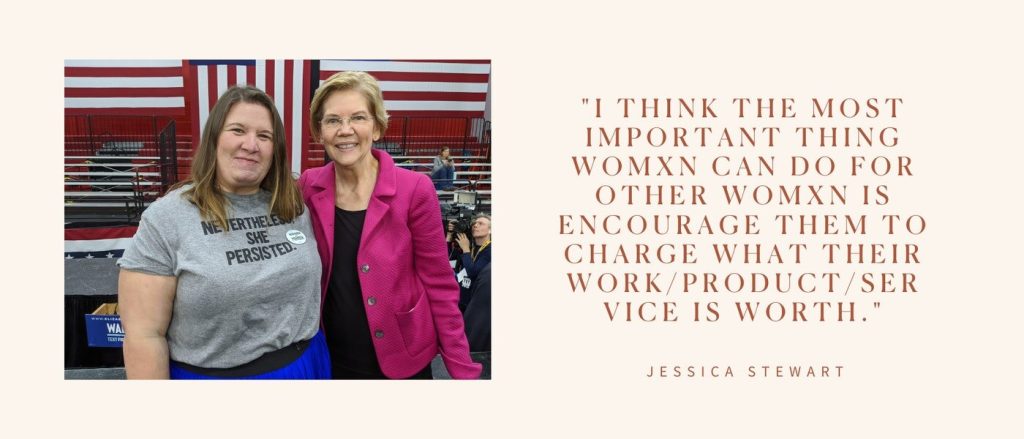Jessica Stewart has worked hard to reject “hustle culture” and overcome her “scarcity” mentality
Lola member, Jessica Stewart has had a winding career path and an upbringing that has taught her so much. To her, success is defined not by working crazy hours, but by striking balance. She has found that creating healthy financial habits is the key to long-term success. When she isn’t running her business, Mint & Moxie Bookkeeping, you can find her singing with OurSong Atlanta or snuggling up with her cat Hazel.
 Jessica Stewart
Jessica Stewart
Location: Marietta, GA
Age: 32 years
What I do: Owner/Accountant at Mint & Moxie Bookkeeping
Briefly describe who you are, what you do for work and for fun
I make my living as an accountant, in a few different forms, working in a larger corporate setting but also getting down into the gritty details of small business bookkeeping and taxes through my bookkeeping business. I offer hourly consulting work for one-time or occasional bookkeeping projects as well as monthly bookkeeping services. On evenings and weekends, you can find me singing with OurSong Atlanta, pretending like I’m a powerlifter at my gym, trying to get my cat Hazel to snuggle with me, or out in the woods somewhere probably getting lost. And once this pandemic is over and it’s safe, I’ll be out traveling the world again.
How did you land upon your professional path? Who or what inspired you into taking this path?
I had a winding career path. In my early 20’s I co-founded a business that sought to employ women in marginalized communities, and that’s where I discovered my partiality for the accounting side of businesses versus the creative. I eventually found my way into a job at a CPA firm and realized that there’s a gap in the communication between accountants and their clients.
Small businesses often leave CPA offices feeling overwhelmed with “tax-speak”, ill-prepared to handle their own books and frightened of doing more damage than good when it comes to their bookkeeping. So my mission is to change that dynamic.

What do you do (for work or fun) to align with your values?
A strong sense of community is integral to my mental health and happiness. So I love spending time cultivating relationships with friends and family. That used to mean showing up to a lot of friends’ jazz concerts or hosting porch parties. Now it means making sure I see the people in my COVID bubble, having friends on to my podcast (Raging Lady Boner – wherever you listen to your podcasts (: ), or calling the friends that I can’t see in person.
How do you define success for yourself? What ideas of success do you reject?
To me, success is being able to close my computer at 4:30 and enjoy the rest of my day work-free. It’s waking up on Saturday and not having to finish a work project before getting to enjoy my weekend. When I first started my bookkeeping business, I would work the most insane hours, not finishing projects until 8 or 9 pm, working over the weekend, and it was hell on my mental health. I used to feel like an imposter in the entrepreneurial world because the hustle and grind were killing my desire to actually be an entrepreneur. But finding that balance that works for me has made a huge difference.

What is your relationship with money? How does money make you feel? What lessons were you taught about money growing up (saving, investing, debt, earning, etc.)?
When you grow up poor in rural Mississippi as I did, things like saving and investing aren’t exactly front of mind, and debt is almost a default state. Generational poverty is often cyclical because parents don’t have the skills to teach their children how to be financially successful, and the pattern continues until it is broken.
Growing up poor often results in a “scarcity mentality” that causes anxiety around money, a fear that you’ll never have enough (because that’s how you grew up), and can lead to poor financial and career decisions. There’s no quick fix to a scarcity mentality. I spent a decade undoing all the harmful financial situations I got myself into as a young adult and suffered a lot of anxiety over them.
Even now that I’m financially stable, those fears can creep back in. Therapy and finding a community in my struggles have made the biggest change. Also getting involved in my finances and being aware of how I’m spending my money, and setting up savings processes that make sense for my own personal budgeting. But also, hindsight has shown that the shame-y tone that is often associated with “getting out of debt” is not helpful or effective. The “life-changing” advice of “stop getting coffee on your way to work” means nothing if that person isn’t making a wage or salary that meets the cost of living in their city.
You manage money for a living, where do you see womxn need the most support around money?
I can’t tell you how many womxn I’ve spoken to who are afraid of overcharging when in reality they are seriously undervaluing themselves! I’m as guilty of this as anyone else. Personally, this comes from two sources: a scarcity mindset (being afraid of not getting enough business) and imposter syndrome (not feeling like I’m qualified enough to charge a certain rate). And it’s only because other womxn called me out on it that I had the courage to raise my prices.

How does money play into how you make big decisions about your life and career?
Going back to the scarcity mentality, I always have to remind myself that I’m financially stable and can make career changes or decide to move without having to overly (and anxiously) ruminate on them, planning out every possible scenario.
Do you approach money in your business and your personal finances in the same or different ways?
Because I have a sole proprietorship with no employees, my business and personal finances get treated very similarly because they’re so intermingled.
Is there anything else you’d like to share that may give us a better understanding of your personal money story?
I’m pretty sure I wrote a novel up there, so hopefully not!



